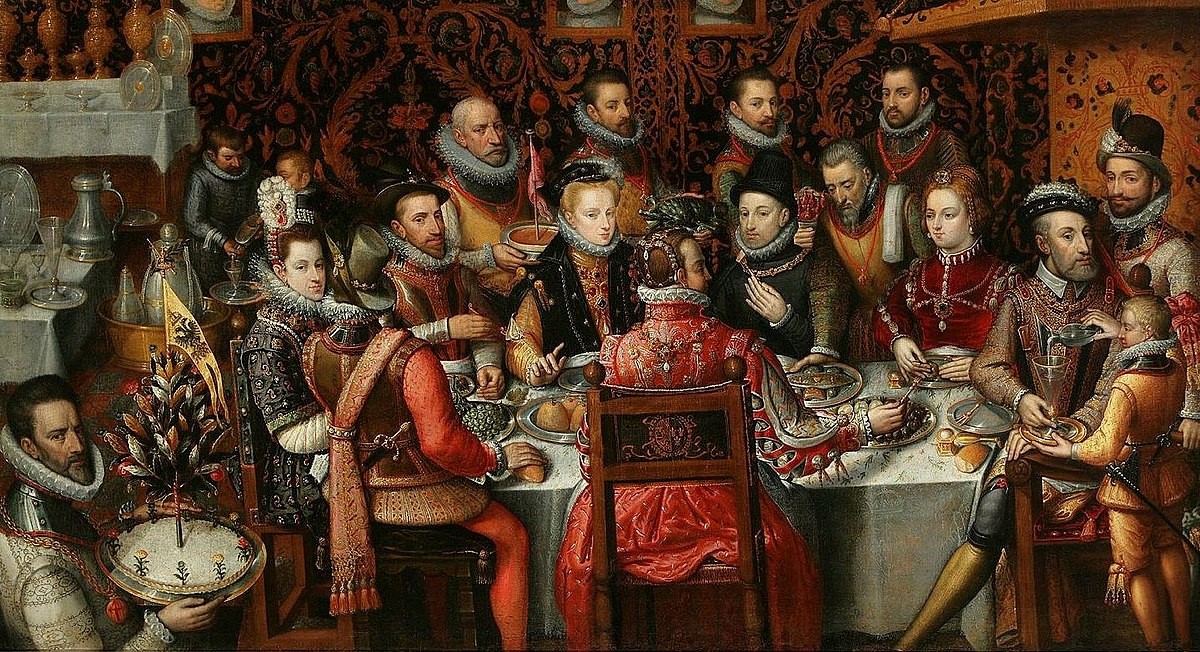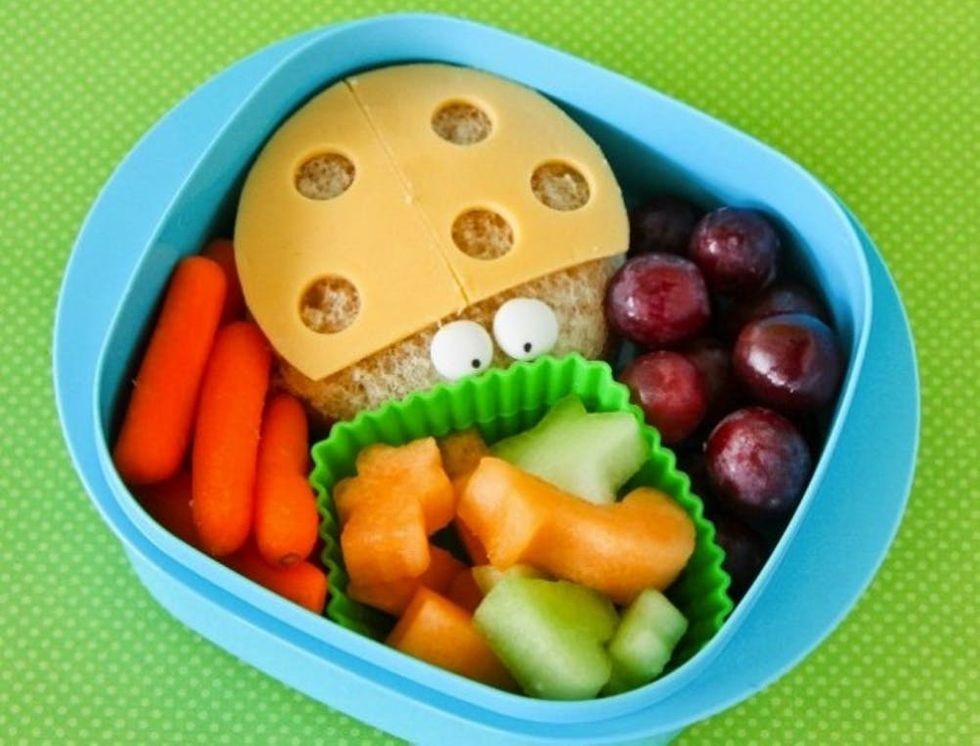by G. Murphy Donovan (May 2020)

The Royal Feast, Sánchez Coello, 1579
You only live once. Lick the bowl. –Anonymous
We all draw the short straw at least once in life. So in the middle of a plague and political firestorm, I chose, for the moment, to contemplate the virtues of a good feed with friends or loved ones.
Eating, education, and maturation are inseparable from family, civic, and biological health. Your kitchen, garden, and dining room are the real primary and secondary schools, home schools for lives yet to be lived.
Cooking and dining are not so much about recipes or formulas, but rather about relationships; the connective tissue of gardens, stoves, children, adults, and civility. The excuse for writing an ordinary cook book might be a better pasty or pot pie, but real recipes are more about life—and what adults owe to kids and associated culinary companions.
Cooking is not science. Recipes are not formulas. A recipe only suggests some combination of ingredients that might be appealing. Like any social grace, cooking is more about suggestions than mandates.
Kitchen patrol is a kind of culinary calisthenics where, like beach bodies, you get better with time and heat. Proportions, ingredients, and temperatures are flexible too. Good chefs purposely use vague suggestions, like a “pinch” or a “handful” or “about” this or that, to suggest that you need to experiment to develop your taste and the flavors of your special dishes.
Once you have mastered a dish, it’s yours—and so are the mix of ingredients and proportions in the recipe. The best recipes, as with any skill, are products of experience and imagination.
If you create a plate at home that your kids like; in their eyes, you become a hero and that special dish is a cherished memory. How many times have you heard some celebrity chef say, “My Mom, or Dad used to cook . . . ”? Over time we may forget many things, but we never forget the sight, aroma, and taste of a favorite meal.
No child is indifferent to their favorite foods or the adults that prepare them. Smell and taste are permanent memories. Literally, if a child develops good taste, the how and what of eating, they are half way home, the journey from me to thee.
Appearance matters too, call it presentation if you must. Most lunches served at schools end up in the trash because the food looks and tastes like road kill.
Serving an unsightly pile on an ill set table is as appealing as watching a bug swim across your soup. For kids especially, food needs to look appetizing. Animal crackers, alphabet soup, and Bento boxes tell that story best. With the latter, small and varied bites are arranged as edible art, pleasing to the eye first, long before taste comes into play.

Cooking and eating are then the definitive team sports, the joy of creating and consuming.
Standards for good cooking are arbitrary but never irrelevant. Indeed, quality and freshness are two essentials for every successful plate. Always buy the best ingredients that you can afford and use them long before the kids elope.
Quality and freshness are recurring themes withal. Wine and cheese might improve with age, but few proteins, vegetables, or spices get better with age.
Of all ingredients, however, the cook should improve with time.
For the structured few who need guidance or rules to proceed, we offer seven general axioms;
- buy the best
- keep it simple
- buy the freshest
- eat with your children
- avoid packages and cans
- practice until you get it right
- the freezer is not a time machine
Axiom four is usually the most difficult. If you don’t have time to cook for, and eat with, your family; you are probably still a selfish adult and need to be reading a different yarn.
Cooking is about relationships, the literal growth of children and the figurative growth of parents. Those who claim to be too busy to cook or eat with children are missing the best of life’s moments. If you are old enough to breed, you should be mature enough to lead.
Once you smell that first diaper, your life is no longer just about you.
The best recipes for the good life are learned at the groaning board where the wisdom of one generation gets passed to the next. Eating, education, and maturation are inseparable from family, civic, and biological health.
Your grocery, garden, kitchen, and dining room are advanced placement courses for the whole family.
The most important rooms in your house or flat are, in fact: the kitchen, the dining room, the bathroom, and the bedroom—all on a sliding scale of importance. The kitchen is important because you are, literally, what you eat. The dining room doubles as a classroom. The bathroom is important because poor hygiene kills more folks than beaver fever.
Sharing a pillow, and its consequences, only makes sense, then, if you are master of the first three.
Anyone who believes that sex is more important than a good meal hasn’t been married; or hasn’t been married long enough. Sex is about a moment, minutes for some. Cooking well, like raising a child, takes time, patience and a lifetime of imagination.
Cooking for rug rats or any fellow critters is always about caring and sharing.
Indeed, cooking, parenting and success in general are exercises in delayed gratification. The ability to delay gratification is the single most reliable predicate of good cooking in particular or success overall—in any pursuit.
Restraint is the key to moderation too. Indeed, we should seek moderation in all things, especially eating.
«Previous Article Table of Contents Next Article»
__________________________________
G. Murphy Donovan worked his way through high school and college in kitchens and dining rooms where he developed an affinity for pots, pans and all those gourmands who still lick the spoon.
Follow NER on Twitter @NERIconoclast
- Like
- Digg
- Del
- Tumblr
- VKontakte
- Buffer
- Love This
- Odnoklassniki
- Meneame
- Blogger
- Amazon
- Yahoo Mail
- Gmail
- AOL
- Newsvine
- HackerNews
- Evernote
- MySpace
- Mail.ru
- Viadeo
- Line
- Comments
- Yummly
- SMS
- Viber
- Telegram
- Subscribe
- Skype
- Facebook Messenger
- Kakao
- LiveJournal
- Yammer
- Edgar
- Fintel
- Mix
- Instapaper
- Copy Link









